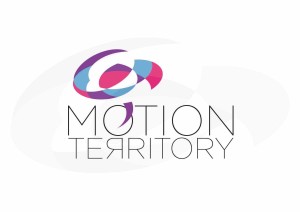As a practicing dramaturge I work together with choreographers for over 12 years. Concrete production dramaturgy to support theatre and dance makers has evolved into expanding and interweaving dramaturgy of organizations and societal discourses in cross-disciplinary work fields and changing environments.
Dramaturgy is about understanding and connecting knowledge to physical matters to be able to create something. Dramaturgy is the study of processes, where learning opportunities prevails. Dramaturgy is the study behind micro and macro stories everywhere. Dramaturgy is an art form of observing and reflecting. This sounds abstract maybe, but it can be recognized in different roles in art, education, psychology, philosophy, programme design, management, writing and of course communication.
” Over the past years I transferred knowledge and practice examples in art, education and organization to more and more people and in different kinds of conversations. I was able to articulate relevance and inspiration for people. My words made people trust their own ideas. Somehow I spread motivation”
anne-Marije van den bersselaar
Dramaturgy explained
The answer can be found in the way of working. As a dramaturge I maintain a dialogical practice where (theoretic or visualized) concepts are studied to integrate in an (embodied) practice and vice versa. Depending on the agreement and connection with the choreographer I contribute by researching the potential of an artistic idea in full conceptual and theoretic strength to deepen the topic and touch an essence, I guard the concept (original or initial idea) of a performance, I engage in the communicative process with the collaborators in a production and I facilitate the creation process by implementing questions and shared analysis. Therefore, dramaturgy can be best defined as a ‘mode of looking‘ to describe my practice.
‘Looking’ by a dramaturge within an artistic team starts from awareness of audience perception. How to receive a performance? I often analyze the potential of what a performance can communicate, mean, represent and reflect and bring that information into the process. Timing is highly important, due to the process development and found solutions in the creative design. And this can easily be adapted to other performative settings as well with analyzing and defining:
Expanding Dramaturgy
- The practice of a dramaturge stays mostly behind curtains and studio walls. The dialogical practice as I described above becomes visible by inspiring theoretic publications by peers and theorists and by interviews related to performances with artists that collaborated with dramaturges. These insights are shared within the artistic domain in a valuable way and connected to complex social issues, but I prefer a dialogue that includes more people into the dialogue. A dialogue becomes richer the moment more voices are invited. This is illustrated by upcoming initiatives in the art field to engage their work in different ways. I really want to contribute to the movement of artistic fertilization of society and exploring the unknown territory of new connections and engagement.
- Although dramaturgy is a hard term to define and an unknown career title for many, in my experience dramaturgy can be easily applied to other fields of work. Ways of adapting or adjusting knowledge in a practical work context is actually part of dramaturge’s expertise. A dramaturge is trained to always adjust their knowledge to work methods and expressions by artists in order to optimize their artistic practice.
- A dramaturge is also trained to connect theory & practice into situational and problem-based project circumstances: I am trained to think in this synthetic duality, to combine form with content, actions with thoughts and creating with learning for example. In my opinion dramaturgy as an isolated, labeled expertise is a waste when it is limited and depending on other artists to define the role of knowledge only.
- In a fast changing world, where there is an urgent need to fight for human ideals and different perspectives on the value of life. I find it hugely important to invest in the translation of social identities with my practice. Dramaturgy can help staying true to your own ideas, ideals and connection to society in more sustainable matters by focusing on content.

